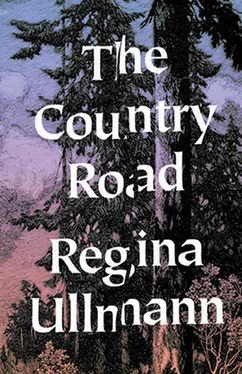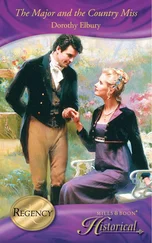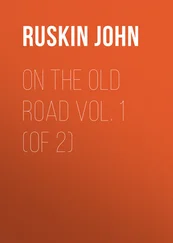Regina Ullman - The Country Road
Здесь есть возможность читать онлайн «Regina Ullman - The Country Road» весь текст электронной книги совершенно бесплатно (целиком полную версию без сокращений). В некоторых случаях можно слушать аудио, скачать через торрент в формате fb2 и присутствует краткое содержание. Год выпуска: 2015, Издательство: New Directions, Жанр: Классическая проза, на английском языке. Описание произведения, (предисловие) а так же отзывы посетителей доступны на портале библиотеки ЛибКат.
- Название:The Country Road
- Автор:
- Издательство:New Directions
- Жанр:
- Год:2015
- ISBN:нет данных
- Рейтинг книги:5 / 5. Голосов: 1
-
Избранное:Добавить в избранное
- Отзывы:
-
Ваша оценка:
- 100
- 1
- 2
- 3
- 4
- 5
The Country Road: краткое содержание, описание и аннотация
Предлагаем к чтению аннотацию, описание, краткое содержание или предисловие (зависит от того, что написал сам автор книги «The Country Road»). Если вы не нашли необходимую информацию о книге — напишите в комментариях, мы постараемся отыскать её.
, largely set in the Swiss countryside, the archaic and the modern collide, and "sometimes the whole world appears to be painted on porcelain, right down to the dangerous cracks." this delicate but fragile beauty, with its ominous undertones, gives Ullmann her unique voice.
The Country Road — читать онлайн бесплатно полную книгу (весь текст) целиком
Ниже представлен текст книги, разбитый по страницам. Система сохранения места последней прочитанной страницы, позволяет с удобством читать онлайн бесплатно книгу «The Country Road», без необходимости каждый раз заново искать на чём Вы остановились. Поставьте закладку, и сможете в любой момент перейти на страницу, на которой закончили чтение.
Интервал:
Закладка:
Mother gave me her parasol to hold. She wanted to take out her money, I saw that it was fifty centimes. That was a lot. Beggars usually received three centimes for a piece of bread, circus riders ten centimes. A small, plump, gray-haired woman was collecting the money. This woman was distressed, it went without saying, for who doesn’t know that feeling, when so few people come out for such a spectacle; no people at all, you could say, since the few who were there turned away when they saw the collection plate, so that in the end the sum was so small that it could no longer even be divided. She was no acrobat in a leotard doing head-first dives. Even the children, her grandchildren, stood by themselves, along that line so carefully drawn by hardship. They stood looking out at the wide plain, not up at the sky as we did, the sky seemed to be spoiled for them. So that was the tavern with the flag. . They looked frozen, too, like people who have had to wait and watch for a long time. As if in a solemn children’s game we had come up to them and asked outright: “Are you the tavern?” and they had shaken their heads violently, so that everyone could see that they meant “no.” They were nothing but their own hardship, like a garden on the north slope: the red turned to pink, the blue to light blue, the yellow just a hint of gold. We should have given them ten francs, ten francs, without a second thought. These were people who had to live from one day to the next, who thought back on the suffering that they had survived as if remembering days of good fortune that held the promise of a long life. It was enough to make you shudder. It didn’t matter if you had seen it, if you had witnessed it. The sight of these people, small and inexperienced, grown old in their poverty, was almost too much to be believed. “But wait,” a voice was calling somewhere, “there are no age differences, there is no miserliness, no privation.” It was as if a strong man had lifted his heavy barbells into the air, his golden chest glistening against the sky, the way that this mean feat was placed before our eyes, to make our charity seem like a bargain. We looked down at the ground, ashamed of our insignificance, which was more powerful than anything, otherwise that man would have gotten the better of us. But for now there was still ground beneath us, no fairy tale and no truth could make us forget that. This great compassion, when does it come to dwell in us? We don’t have it in childhood, we don’t have it in the strength of our youth, perhaps we don’t even have it in old age. To give is a simple thing. Perhaps generosity is found elsewhere as well, in patience, perhaps even in hardship, when it has not yet taken hold of us and transformed us. Hardship is a razor-sharp science: we will treat of it no more. I don’t believe that the fifty centimes were a paltry sum to the grandmother, although her gray, everyday eyes made no reply. Sometimes one person must take the place of the many who did not come or did not pay. They knew, too. There had been a brief notice in the daily paper, something like: “Weather permitting, an acrobat hanging from a hot air balloon will perform this Sunday. All are invited to attend.” Date, time, and location.
And now the sphere was slowly moving. We saw his children loosening the ropes. And the man himself, like an empty town square where several roads suddenly meet, adjusted his leather belt, with which — you never know, perhaps out of weariness — he might later tie himself to his trapeze, high above in the open air. He checked one last time if his belt was snug, blew a kiss, like a half moon in the afternoon sky, swung himself up onto the trapeze when it had reached the height of his head, and ascended further and further into the heavens. His daring swings were spectacular. Once we saw him outside the trapeze, both legs extended straight into the air, only holding on with his left hand. We looked on. In our hands (we felt) we held something that wasn’t there. We wanted to come to his aid, because up there in the air. . The acrobat beneath the hot air balloon. . How far away he must be even at that moment. . How long an hour must feel to him. . The day was gentle and mild. But we, like lizards, blinking, slipped quickly back under our rocks.
The Christmas Visit
Above the strawberry garden, on the second story, worked a clerk who had once been a typesetter. Our mother told us that in an earnest tone. “He had such respect for his work that you had to admire him, even if they were all the same letters in all the same places where any other typesetter would have put them. We’re going to go pay him a visit during the Christmas holidays.” And that was important to us, and a short time later we festively took the little letter that announced our visit. And it wasn’t just important to us because it was a visit. No, as simple, ordinary children, we were all the more able to grasp the significance of this in our minds, to glimpse the visit’s meaning with the clarity and truth that lay hidden within it.
Even the simple fact that the man lived on the other side of the hill, that he had the courage to draw his own breath between what was newly created and what was still evolving, this fact alone was enough to excite our minds, and so we entered his house upright and alert.
He greeted us himself. He came toward us with just the brisk, decisive stride that we had anticipated. His wife came. His children stood waiting in the doorways of the spacious corridor until they were called. “This is our house,” they said gracefully, “and this here is Gretchen.” They took our coats. And then came the little procession to the Christmas parlor. And what a room it was! If we had been alone, we certainly would have taken a step back. There was a bird singing in there, as secret and sparkling as if he were sitting in the branches outside. And even though we had brought our unfamiliar, wide-eyed presence with us into the room, the minutes kept running ripe and clear, bringing moisture to what would otherwise have dried up, to what should not be forgotten. And the festivity began there, too — unruffled, it began just where it always did, at the small sewing table, as if in person, humble and plain. Since it was Sunday, and there was no work to be done, this festive spirit was weaving together hundreds and hundreds of rings of sunlight, and taking them apart again. But then came the table, courting us with its own scents. The honey cakes and the cinnamon stars, the many sorts of butter cookies, they were all prepared to trade with one another, or even to be given as gifts if the occasion allowed. Meanwhile they kept growing sweeter and crisper, believing that all of this came from the Christmas tree. But the tree, too, had retained the round shape measured out for it by the sun, at once a tree of the forest and a Christmas tree. But I don’t recall how it was decorated. Only that I liked it. I’ve forgotten, too, what gifts lay on the white-and-blue-stitched cloth. But they must have been chosen with great care, with the care of the three hundred and sixty-five days of the year. When we had had our fill of looking and tasting, a little Christmas carol began, like a small manger set into the moss. And the two children sang of the news from heaven, echoing their parents’ voices with such joy that one had to listen and smile. The children’s interwoven melodies — like a soaring proclamation — were gifts, too, and we gathered the words from their mouths.
Then we were called into the living room; there I noticed a doll’s cradle. But the boy had spread out an atlas where you could see the entire world; how the land suddenly stuck its tongue out into the sea. With joyful eyes the boy wandered into that world. Understanding is love. It is nothing in itself, though it may be fully present in a person; it only continues naturally on and on. And whatever may inspire it or fulfill it is fully absorbed in our body and mind: this way we do not bump up against the pointy outcroppings of others. And so the atlas was truly a gift. But it was folded up and put away. Then came the cups and the tall coffeepot and the crystal sugar bowl, and Christmas was there in yet another form. The whipped cream — which they called Niedl —was truly tempting, but it also lent a formal air to this festive occasion. Who wouldn’t have wanted to have those lovely gifts come to visit once a year, on flowery damask! And with such fine manners, such propriety and reserve, that the little silver spoon seemed to bow, before it was lifted with delight. And the conversation echoed this conviction of the goodness, the soundness of all those things not experienced firsthand, and the rightness of each person. This was the same reverence as at the typesetting tray. A child could understand that. It was clear as water, supple and free of any unwelcome aftertaste, but also hard and steady like the water that wears away much harder stones. Of course we children rarely had the chance to pose a question, but our ears were always intent on the conversation.
Читать дальшеИнтервал:
Закладка:
Похожие книги на «The Country Road»
Представляем Вашему вниманию похожие книги на «The Country Road» списком для выбора. Мы отобрали схожую по названию и смыслу литературу в надежде предоставить читателям больше вариантов отыскать новые, интересные, ещё непрочитанные произведения.
Обсуждение, отзывы о книге «The Country Road» и просто собственные мнения читателей. Оставьте ваши комментарии, напишите, что Вы думаете о произведении, его смысле или главных героях. Укажите что конкретно понравилось, а что нет, и почему Вы так считаете.












